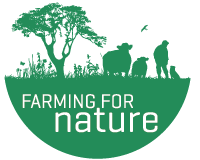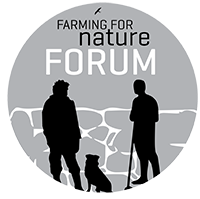Why ‘farm for nature’?
Printable version here
Nature on the farm comprises all of the natural resources in the farming landscape, including soil, water, plants and animals. Farmers manage these resources and interact with nature on a daily basis to produce food. In a modern agriculture and land management context, however, farmers are expected to do more than just produce food. They are also tasked with managing nature to produce a range of other services that are crucial to society. These services include climate and water regulation, the management of space for nature and the provision of aesthetic landscapes. To help farmers to deliver this range of services, Farming for Nature seeks to demonstrate and support farming practices that protect and enhance nature on the farm.
Some reasons for including nature in farming decisions:
- Reduce costs: natural nitrogen fixers, such as clovers in grassland and beans or peas in a tillage rotation, can reduce the need for applying costly fertilisers.
- Pollinating and predatory insects are key to our food production. Currently, insects are dramatically declining due to increased insecticide use and reduced availability of natural habitats. If this decline continues, it will result in reduced pollination, more pest outbreaks and increased food production costs.
- Hedgerows are a key habitat for our native flora and fauna. Hedgerow removal or over-cutting means less habitat for wildlife as well as less shelter and shade for livestock. Removing hedgerows may also increase the risk of flooding, erosion, spray drift and airborne diseases.
- Healthy soils are the foundation of sustainable farming. The more earthworms, fungi and microbes in your soil, the better the soil will function (e.g. improved nutrient cycling, improved soil structure, increased carbon storage). Maintaining healthy soils can also lower the costs you face in production, lead to healthier and more nutrient dense crops/swards and safeguard the viability of the farm for future generations.
- Healthy watercourses can enhance local biodiversity, ensure cleaner, healthier water for livestock and people and help to mitigate against the risks of floods and droughts.
- Income: most farmers take part in agri-environment schemes. Such schemes are evolving away from a focus solely on food production and towards a broader focus on environmentally sustainable farming practices. Future schemes will most likely reward those farmers who deliver most for society across both food production and environmental measures.
- Legacy: by farming for nature you are creating a sustainable legacy for future generations and contributing to a better future for all.
For more information on how to farm for nature, search by
WHERE TO START SECTOR HABITAT SEASON FAQS
FURTHER RESOURCES EMAIL US ANY SUGGESTIONS

